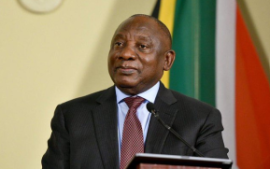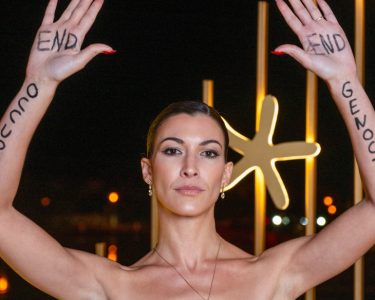
PRETORIA, July 12 (NNN-SANEWS) — President Cyril Ramaphosa has convened the inaugural meeting of the Eminent Persons Group to kickstart a critical national dialogue aimed at addressing South Africa’s persistent challenges 31 years after democracy.
Speaking at the Union Buildings in Pretoria, Ramaphosa candidly acknowledged the country’s ongoing struggles.
“There can be no doubt that we have begun to transform our society and our economy. And yet, the vestiges of our apartheid past remain,” he said, pointing to persistent issues of inequality, poverty and unemployment that continue to plague the nation.
“Our economy has not been growing, and the number of unemployed people has been rising.”
He also acknowledged the deterioration in governance, a decline in the delivery of services, and widespread corruption and wastage of public resources.
“At the same time, we have seen an increasing disengagement by many people from the democratic process, as witnessed by the turnout in the May 2024 elections.”
According to the country’s Commander-in-Chief, the national dialogue represents a bold attempt to unite South Africans across political, cultural, and social divides.
President Ramaphosa used Friday’s meeting to call for a process that is inclusive and citizen-led.
“It cannot be partisan. It cannot favour one group or perspective over any other.
“It needs to be citizen-led, and the outcomes need to reflect the collective views of the South African people.”
The President said the national dialogue represents a strategic effort to mobilise South Africans and restore the country’s developmental trajectory.
“The national dialogue is neither government-driven nor directed,” President Ramaphosa stressed, underlining the importance of genuine public participation.
“Citizens must be able to freely and fully participate in the national dialogue as individuals, in organised formations, and through representative bodies.
“That is why the Eminent Persons Group is so important.”
Highlighting the nation’s rich tradition of collaborative problem-solving, President Ramaphosa noted that “dialoguing is not a new phenomenon to South Africans”.
He also pointed to previous successful national conversations like drafting the Constitution, the National Peace Accord, and the country’s response to the devastating COVID-19 pandemic.
However, the President emphasised that the dialogue is not intended to replace existing democratic processes.
Instead, he pointed out that it aims to create a social compact that outlines clear commitments for government, political parties, business, labour, civil society, and citizens.
President Ramaphosa stated that a carefully selected Eminent Persons Group will champion the dialogue, tasked with ensuring its authenticity and effectiveness.
He challenged these leaders to be critical guardians of the process, not mere cheerleaders.
“We are asking you, Eminent Persons, to be champions of the national dialogue, not cheerleaders.
“We expect that you will critically consider the progress and the conduct of the national dialogue, and provide advice where correction is required.
“If there is confusion or misunderstanding, or disarray, we ask you to help correct it. If there are groups that seek to commandeer the process, we ask that you alert us.”
The First Citizen announced that the first national convention is scheduled for August, with the hopes of generating a collective vision for South Africa’s future.
“South Africans want to be heard, they want to participate; they want to be included in whatever process is meant to improve their lives.”
With scepticism and political tensions already emerging, President Ramaphosa believes that the success of this national dialogue remains to be seen.
“We have already been confronted by the challenge of misinformation and misrepresentation, whether on the cost of the national dialogue or on who is running it.
“But that should not distract us from the work we have to do to give a platform to the millions of voices in our country, so that they may be heard and so that they may be counted.
“We should not fear criticism. We should welcome it.”
Despite criticism, the President strongly believes this platform represents a potentially crucial step in addressing the country’s deep-seated challenges. — NNN-SANEWS






